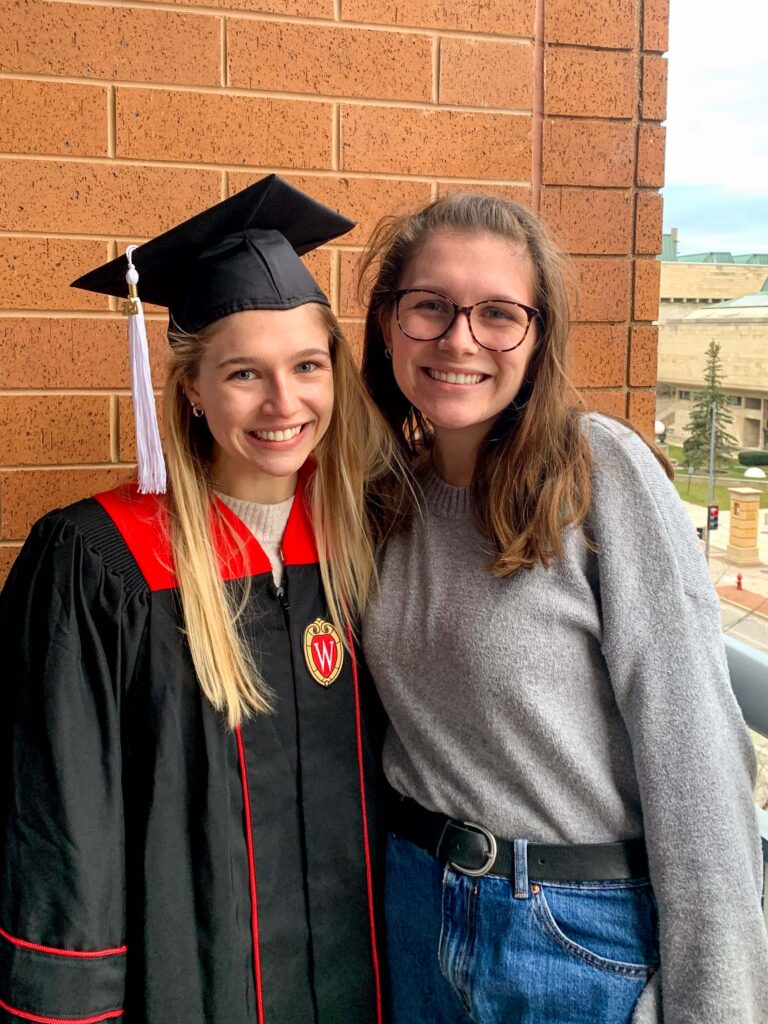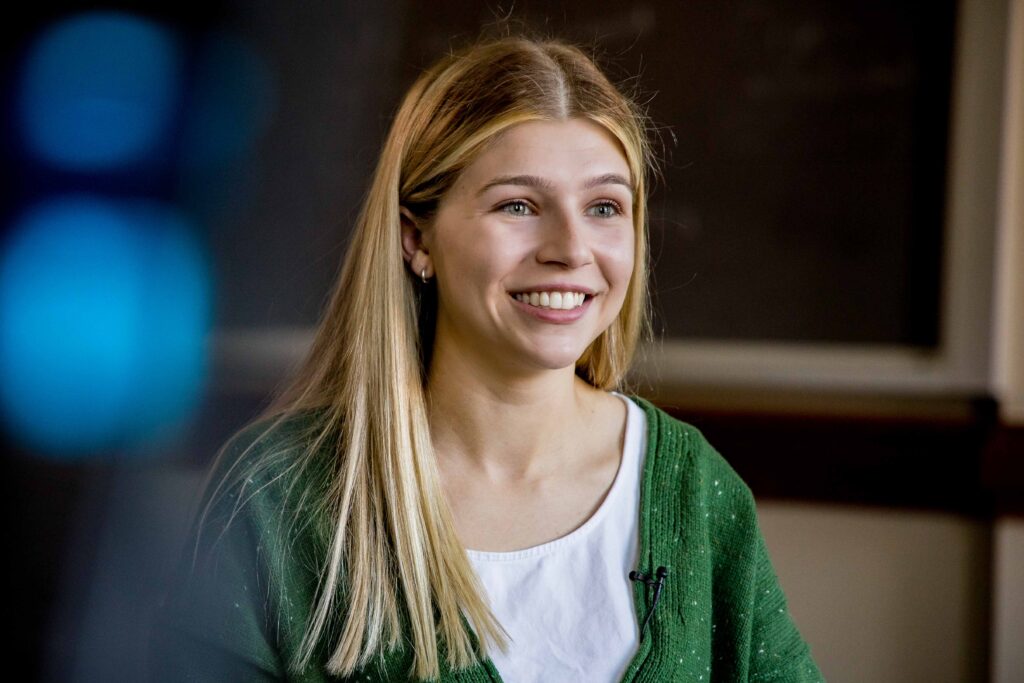Liberty Moore is a graduate student in Deaf Education here at Washington University. A bilateral cochlear implant recipient, she has garnered experience as both a research subject and research scientist and hopes to become a teacher of the deaf.
How did your deafness develop and at what age did you receive cochlear implants?
I was born with a bilateral profound hearing loss. My parents decided that I should receive bilateral cochlear implants. My right ear was implanted when I was four and my left ear when I was ten. My sister Justice is three years younger and was also born with a bilateral profound sensorineural hearing loss. She is a bilateral cochlear implant listener as well.
Our mother had healthy pregnancies. We do not have any other clinical anomalies, and there is no known history of deafness in our family. Identifying the cause of this type of non-syndromic hearing loss can be complex.

How would you describe that challenge growing up?
I went to public schools in Northeast Wisconsin. When I started, there were not many resources available for students that were deaf or hard of hearing. My parents made sure that I was set up for success, however. My mother worked tirelessly at home to improve my listening and spoken language. At school, I worked with speech-language pathologists (SLP). I took classes with typically developing children, but I was often pulled out of class to work with SLPs. It was a challenge being pulled out of class a lot, but reflecting on that experience, I know I wouldn’t be where I am today without working with many SLPs. They also taught me how to advocate for myself when I was young, as not everyone knows how to work with deaf or hard of hearing people.
Although being deaf has had its challenges, I have received opportunities that I wouldn’t have if I were not deaf. I went to a camp every summer during my childhood, where I spent a week with other deaf and hard-of-hearing children, and I formed many friendships with those just like me. Additionally, having cochlear implants allowed me to find my future career in a field that I am incredibly passionate about.
How did you connect with the Litovsky lab? What kind of research did you do there?
For over a decade, I participated in research studies in the Binaural Hearing and Speech Laboratory, directed by Ruth Litovsky, PhD, at the University of Wisconsin-Madison. These studies focused primarily on speech-in-noise perception, the development of binaural hearing, and the role of cognition and executive function in hearing. At first, I didn’t understand the research and its importance, but the researchers always wanted me to know what they were testing and what the results meant. I was fascinated by the methods used by the researchers in the lab and what I learned from them.
I entered college interested in pursuing a nursing degree. I had worked as a certified nursing assistant in assisted living before starting college. I wanted to be in a helping profession, but I was unsure if nursing was a good fit for me.
When I started school, I reached out to the Litovsky lab, hoping to assist with administrative work. The lab welcomed me with open arms. I attended lab meetings, research talks and assisted with data collection. During my third year, I received the Hilldale Undergraduate Research Fellowship which provided the opportunity to undertake my own research project. I used functional near-infrared spectroscopy (fNIRS), a non-invasive optical imaging technique, to investigate binaural integration in cochlear implant listeners under several listening conditions.

Ultimately, I changed my major to communication sciences and knew that was the right decision because I had always found the research fascinating and meaningful.
Why did you choose WashU/PACS for graduate study, and what has that experience been like?
When I discovered the Master of Science in Deaf Education (MSDE) program at WashU, I knew that it would be the perfect fit for my career goals. I am learning about current best practices for working with deaf and hard of hearing students in the classroom. I am also gaining valuable experience at Central Institute for the Deaf (CID). CID sets its students up for success in a mainstream classroom. The exposure at CID provides vital hands-on experience with young students who have CIs.
Although I do have a background in communication sciences, I am learning a lot. I also value the small cohort sizes. There are eleven students in my cohort. This allows us to work together effortlessly. Everyone has diverse backgrounds, and we contribute to the program in different ways. This is a unique aspect that you don’t typically see at other programs.
After I graduate, I will work as a teacher of the deaf. I want that real-world experience of working with deaf and hard of hearing students while I continue to formulate new research questions. Ultimately, I plan to pursue a PhD in communication sciences and work in academia. I hope to one day be a cochlear implant researcher and to teach and mentor communication sciences students that will work to improve the lives of deaf and hard-of-hearing children.
